At least, don’t pay it off quite yet.
If you’re an average, hard-working adult with a family and a home to call your own, then chances are you’re probably trying to pay off your mortgage as quickly as possible. This strategy seems pretty sound at first; after all, won’t you save money in the long run by paying off your mortgage ASAP?
Surprisingly, in many cases paying off your mortgage quickly won’t save you money at all; indeed, rushing through a mortgage could actually be costing you money in the long run. While you’ll want to pay your mortgage off eventually, it is generally more beneficial to take your time and invest your hard-earned money in other ventures. If this idea seems counterintuitive to you, never fear! Below, you’ll find a few of the main arguments for taking your mortgage payments nice and slow.
Your mortgage’s interest is tax-deductible. While many people regard paying interest with dread, remember that paying interest on a mortgage will actually reduce the amount of money you need to pay for taxes each year. For instance, say you’re in the 35% tax bracket. Since your interest payments on your mortgage are tax deductible, you’re actually saving 35 cents in federal income taxes for every dollar you spend on your mortgage’s interest. You’ll also end up saving on your state income taxes, although the amount will obviously vary depending on the state you live in. In other words, while you’re spending money on your mortgage you’ll also be paying less money in taxes. As such, you’ll be spending less overall money than you think.
A mortgage helps you increase your overall wealth. Oftentimes, homeowners aim to make large down payments in order to decrease their monthly payments. Or, they’ll aim to get a 15-year loan rather than a 30-year loan in order to pay off the mortgage faster. While these decisions might seem sound, it’s actually often more beneficial to make a lower down payment and to opt for a 30-year loan. Making a lower down payment effectively means that you have greater capital to invest elsewhere than you would have if you’d initially paid a more sizable sum of money. Investing more money over a greater span of time will ultimately result in a more profitable return and will net you greater wealth. Making a larger down payment and larger monthly payments, however, will leave you with fewer funds to invest in other ventures and, once your mortgage has been paid off, you’ll have less time to invest and build your net worth. As such, rather than viewing your mortgage as some financial dragon you have to slay, view it as an investment for the future that will ultimately garner you more wealth, increase your liquidity, and improve your financial stability.
Your mortgage is cheap money. Sure, it may not seem cheap when you’re paying it off, but a mortgage is actually one of the cheapest loans you’ll ever get. For instance, while you can get credit cards with 0% interest, those rates will only last for a brief span of time; it’s not like you’ll have 0% interest rates for 30 years. Indeed, the interest rates for most credit cards will shoot up to about 18% after the initial trial period. Considered in this context, a 4% mortgage becomes almost ridiculously generous, especially when one considers that, late in the 1980’s, mortgage rates reached about 18%. As it is, current mortgage rates are ridiculously low, and so it’s a perfectly sound decision to pay off less of your mortgage each month so that you can allocate those funds to paying off other debt, such as those pesky student loans.
Mortgage doesn’t decrease your home’s value, and it doesn’t prevent you from building equity. Contrary to popular belief, having a mortgage is not going to decrease, or really even affect, the value of your home. Additionally, it’s not going to prevent you from shoring up your equity. While the housing market can rise or fall in the coming years, and will most likely go through some periods of both rising and falling, simply having a mortgage is not actually going to affect your home’s value at all. Additionally, while you’ll accrue some equity by paying off your mortgage, odds are that you’ll acquire much more through the natural increase of your home’s value. As such, you’ll be building equity even if the original amount of money you owe stays the same.
All in all, it’s clear that, when you manage your mortgage responsibly, it’s not a liability at all, and in fact is often a significant financial advantage. For advice on managing your mortgage, contact Cody Touchette, MLO # 83216, Pickett Street’s preferred lender.
Cody Touchette
MLO–83216
Mortgage Planner
The Touchette Team
22232 17th Avenue SE #207 | Bothell, WA 98021
O: (425) 492-1698 | F: (855) 873-4548
Cody.Touchette@CaliberHomeLoans.com

